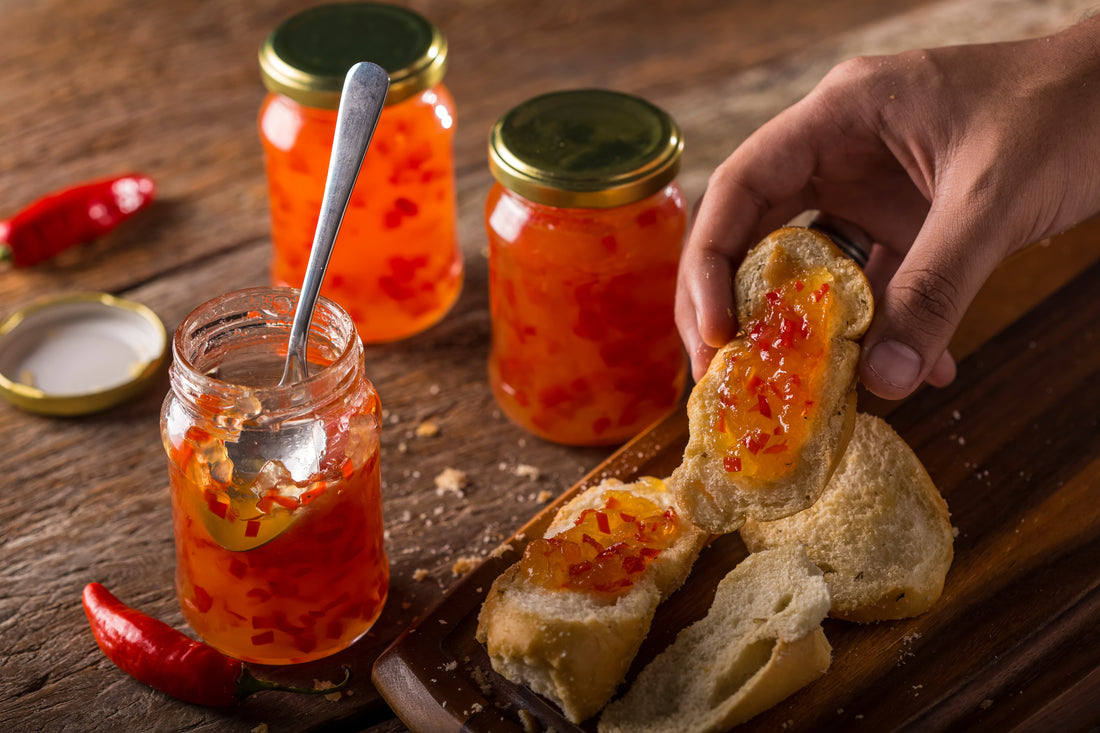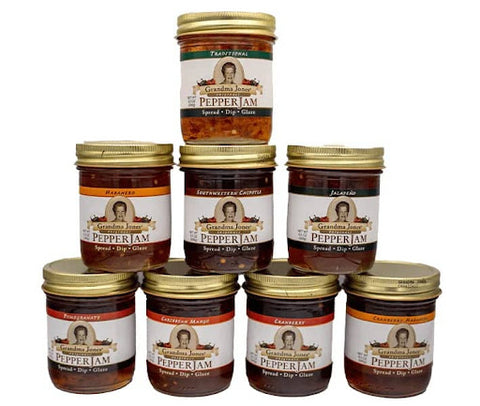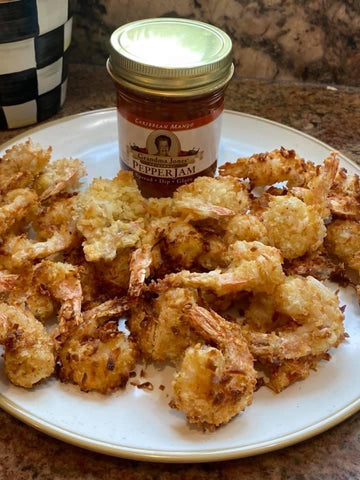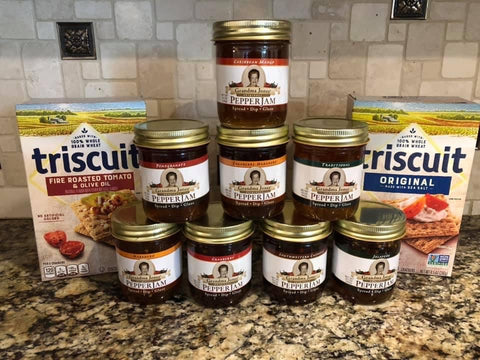
The History of Pepper Jelly: A Sweet and Spicy Culinary Journey
Share
Introduction
Pepper jelly, a delightful combination of sweetness and heat, has captured the hearts and taste buds of food enthusiasts across generations. As a versatile condiment, it has found its way into a myriad of dishes, from appetizers and entrees to desserts and even cocktails. Understanding the history of pepper jelly not only deepens our appreciation for this unique creation but also allows us to trace the evolution of global cuisine and cultural exchange.
The history of pepper jelly is a tale that spans continents, centuries, and culinary traditions. From its humble beginnings, this sweet and spicy concoction has traveled the world, adapting to regional tastes and ingredients, and leaving its mark on the food culture of countless communities.
In this article, we will embark on a culinary journey to explore the origins of pepper jelly, its evolution over time, the impact it has had on global cuisine, and its modern renaissance as a gourmet food staple. Join us as we delve into the fascinating story behind one of the world's most beloved condiments.
I. Origins of Pepper Jelly
A. Early uses of peppers and sugar
Pepper jelly's origins can be traced back to ancient times when peppers were used not only for their flavor but also for their medicinal properties. Archaeological evidence suggests that people in the Americas have been cultivating and consuming peppers for over 6,000 years. Sugar, on the other hand, has its roots in Southeast Asia, where sugarcane was first domesticated thousands of years ago.

B. The influence of trade routes and cultural exchange
The fusion of peppers and sugar into a single condiment likely occurred as a result of trade routes that connected different parts of the world. The discovery of the New World in the 15th century led to the widespread exchange of ingredients and culinary ideas. Europeans were introduced to peppers, while the Americas were introduced to sugar. This global exchange of ingredients allowed for the creation of new and innovative dishes, one of which was pepper jelly.

II. The Evolution of Pepper Jelly
A. Regional variations and flavors
As pepper jelly spread across the world, it adapted to regional tastes and ingredients. In the southern United States, for example, hot pepper jelly is made with a combination of sweet bell peppers and spicy jalapeños or other hot peppers. In the Caribbean, pepper jelly often includes scotch bonnet peppers, giving it a distinctively fiery flavor. Meanwhile, in Asia, pepper jelly can be found in various forms, such as the sweet and spicy chili jam used in Thai cuisine.

B. The role of preservation techniques in shaping pepper jelly
The art of preserving food has played a significant role in the development of pepper jelly. Canning and preserving techniques, such as using vinegar, sugar, and pectin, allowed for the creation of a shelf-stable condiment that could be enjoyed throughout the year. This not only made pepper jelly more accessible but also contributed to its continued popularity.

III. The Impact of Pepper Jelly on Global Cuisine
A. The spread of pepper jelly around the world
Pepper jelly's versatility and unique flavor profile have made it a popular addition to cuisines around the world. From Europe to Asia, chefs and home cooks alike have embraced the sweet and spicy condiment, using it as a glaze for meats,
a topping for cheese and crackers, a dipping sauce for appetizers, or even a flavor booster in desserts. As pepper jelly continues to spread across the globe, it has become a testament to the interconnectedness of our culinary traditions and the power of food to bring people together.

B. Fusion dishes and culinary innovation
The fusion of different culinary traditions has led to creative and innovative uses for pepper jelly in modern cuisine. Chefs and home cooks have experimented with incorporating pepper jelly into unexpected dishes, such as using it in salad dressings, blending it into ice cream, or swirling it into baked goods. These innovative recipes showcase the versatility of pepper jelly and highlight the potential for continued culinary exploration and experimentation.

IV. Modern Pepper Jelly: A Culinary Renaissance
A. Gourmet brands and artisanal producers
The recent surge in interest in artisanal and gourmet foods has led to a renaissance for pepper jelly. Many small-batch producers have emerged, offering unique and creative flavors, such as pineapple-habanero, raspberry-jalapeño, and even chocolate-chili pepper jellies. These gourmet brands have elevated pepper jelly from a humble condiment to a sought-after specialty item, beloved by food enthusiasts and gift-givers alike.

B. New flavors and creative applications
As more people discover and embrace the unique flavor of pepper jelly, new and exciting flavors and applications continue to emerge. Modern twists on the classic recipe, such as incorporating exotic fruits, herbs, or spices, are gaining popularity. In addition, the culinary world is continually finding new and inventive ways to use pepper jelly, from incorporating it into cocktails and beverages to using it as a glaze or marinade for grilling.

V. Conclusion
The ongoing popularity of pepper jelly is a testament to the power of culinary innovation and the enduring appeal of sweet and spicy flavors. As we look to the future, it is clear that pepper jelly will continue to evolve and inspire new generations of food enthusiasts. With its rich history, global impact, and ever-expanding list of creative applications, pepper jelly has truly earned its place as a beloved culinary treasure.

